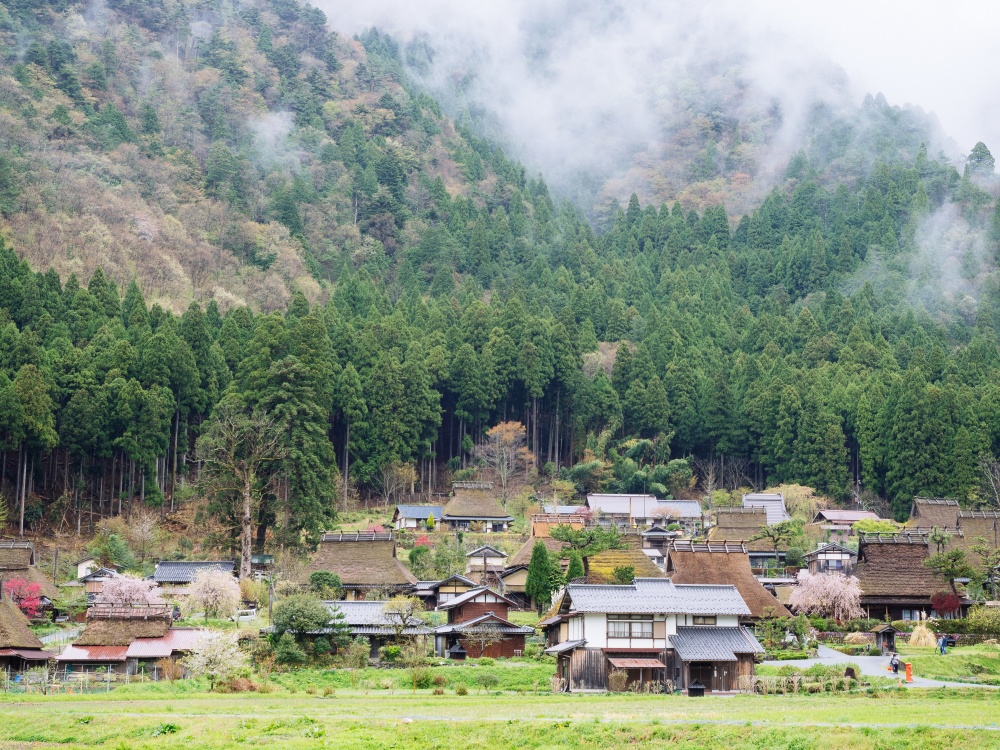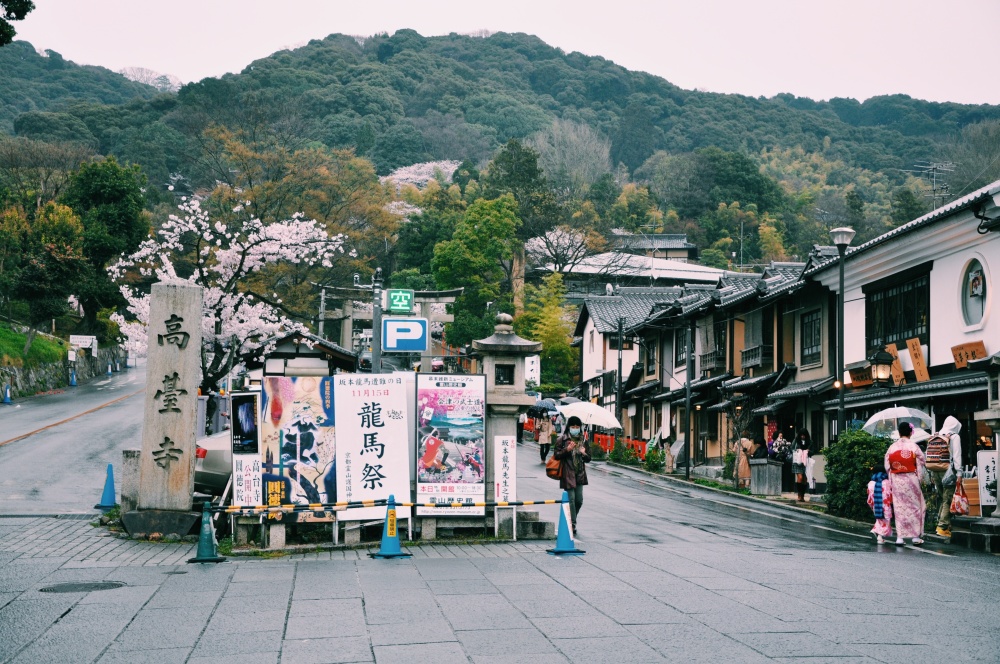Updated February 5, 2023
Living in the Inaka: A Guide to Rural Life in Japan
Have you ever dreamt about moving to the countryside?
If your answer is yes, you’re not alone. The daily grind of city living can get tiresome fast, so living in a rural area is a dream shared by many across the globe.
Things aren’t any different in Japan, of course.
Big cities like Tokyo, Kyoto, and Osaka might have everything a person could possibly need, but they lack one truly important thing: peace of mind.
This is why many people consider living in Japan’s “inaka” — the countryside, or rural areas in Japan — but is it as peaceful as they say? Is it really the ultimate way to live life and achieve true happiness?
This is what I’m here to explore today.
Is Japan’s inaka the ultimate solution to burnout? Is living in the countryside really the “end-all-be-all” recipe for life-long peace? Let’s find out.
What Is The Inaka of Japan?
The literal translation of the word “inaka” is “countryside.” However, it can also refer to the specific village or town where a person is from. The word can also be used as a verb when describing something that’s “rural.”
Moving to the inaka essentially means that you’re moving somewhere other than the big cities of Japan like Tokyo or Kyoto. Small villages, remote islands, and small mountainside towns are all considered inaka in this context.
The inaka is great for anyone who loves nature, as you’ll be greeted with beautiful sceneries of Japan’s lakes, forests, and mountains.
In the inaka, you’ll also get to experience Japanese culture in its purest form. Since not many foreigners live in the Japanese countryside, all you’re left with is the unadulterated local culture at its finest.
But is the inaka as good as it sounds? Let’s see how it compares to living in a big city such as Tokyo.
Living in Japan’s Inaka: Rural Life vs. City Life

Living in the countryside of Japan sure has its perks, but is it really as great as it sounds? Here are a few points to consider.
Housing in Japan: Rural Areas Rule!
If you’ve had the “ever-so-wonderful” pleasure of seeking housing in the hellish housing market of Japan’s metropoli, you’ll be glad to hear that the housing market is the exact opposite in the inaka. You’ll have more options than you can choose from.
For one, you actually get to pick where you live. The inaka usually comprises large, spread-out lands as far as the eyes can see. As there’s no shortage of land, you’ll have more luck finding your dream place.
Besides, the competition isn’t as bad as in the big cities. Since people tend to move to the big cities for better job opportunities, and foreigners usually pick well-known ones like Tokyo or Kyoto, you’ll have no problem finding a place to live.
Secondly, the houses you’ll find will be much more spacious than the so-called “apartments” in Tokyo. Japan’s big cities are crowded, and there’s only so much room for everyone to live in, hence the tiny apartments.
In rural Japan, you simply get more bang for your buck, as you’ll get a much larger space for the same price.
Lastly, compared to the big cities, housing prices are much lower. I talked about this in my post on the struggles of finding an apartment in Japan for foreigners, but the housing market in the bigger cities is not in the best state due to overpopulation. Generally, you’ll have a much better time finding a house on a budget in the inaka.
Speaking of costs, let’s now take a look at the general living expenses and how they compare to big-city living.
The Cost of Living in Japan’s Inaka
As you can guess, living in the inaka is much cheaper compared to living in a big city such as Tokyo, but let’s get more specific.
Living in Tokyo, you’re facing rent prices starting at 100,000 JPY, which is actually optimistic. You can easily go up to 200,000–280,000 JPY. And for people used to large accommodations, some may still manage to be disappointed.
In the inaka, on the other hand, finding a good, spacious place for 14,000–28,000 JPY (100-200 USD) is very achievable. If you’re fine with a smaller place, which should still be much bigger than a Tokyo apartment, you can even find a house for 7000–10,000 JPY (50-75 USD)!
And yes, we’re talking about monthly rent here.
As for the other expenses, you’ll find that eating and shopping, in general, will cost much less. Including the bills, 120,000 JPY (850 USD) a month is a good budget for living very comfortably in the inaka. In a city like Tokyo, however, you wouldn’t be able to survive with this amount even if the bills weren’t included.
I have a separate post where I talked about the real cost of living in Japan in detail. If you want to learn more about general living expenses in Japan, I recommend you check that one out as well.
Transportation in Rural Japan
In Japan, rural areas are much closer to the big cities and each other than in the United States. This is why getting from point A to B is much easier in Japan’s inaka.
That being said, you’ll probably need a car if you live in the countryside. Unlike big cities, where public transport covers all areas, you’d be lucky if there’s a direct train line from your small town to the closest city.
On the flip side, you won’t come across any traffic jams. Driving is a joy when the road is all yours, and you’ll only have to travel relatively short distances to get around anyway.
With this comparison out of the way, let’s talk a bit about the pros and cons of living in the countryside of Japan.
The Pros and Cons of Living in Japan’s Inaka

I already covered a lot of the differences between city and inaka living, but here are some pros and cons you might want to consider before making your decision.
Pro: Better, Fresher Produce
Living in the countryside has many perks, and the availability of fresh produce is a big one.
Agriculture is popular in rural Japan, and you’ll see fields of vegetables, grains, and fruits around almost every town.
As people live in houses in the inaka, nearly all houses have their own gardens as well. You can even grow your own fruit and vegetables or pick up the freshest produce from the local markets. After all, knowing where your food comes from is a luxury you can’t afford in a big city.
Con: Language Barriers
As a foreigner, you’re bound to have language related-issues in Japan. For one, not everyone speaks English, and even if you want to learn the local language, it might take quite a while to develop conversational skills.
Naturally, in the inaka, there are even fewer people who speak English, and this might be challenging when you first move into your new place. Still, don't be discouraged because even though most people might not speak English well, you’ll at least find some that understand it.
While it’s not possible to learn Japanese overnight, you can still learn some basic words and phrases in Japanese. This should at least help you establish rudimentary communication. You can use the guide I prepared for the basic Japanese phrases you’ll use daily.
This way, you’ll show the local people that you’re willing to become a part of the community by making an effort, which will motivate people to try and understand you.
Pro: Lots of Local Festivals
I wasn’t kidding when I said that you’d get to experience Japan’s culture in its purest form in the inaka.
You might not believe me, but the idea of moving to the countryside isn’t so boring when you know that there’ll be local festivals happening every other week!
Japanese inaka is filled to the brim with diverse cultural happenings, often celebrated with lots of delicious local food, drinks, and music. The festivals especially ramp up during the summer months, but you’ll get to experience smaller ones during the winter as well.
Con: Being on Public Display at All Times
In small towns, everyone knows each other. This can be both a blessing and a curse.
If you’re a private person, you might have trouble adjusting to “being on display” when you’re out and about. As a foreigner, people will quickly learn who you are, and you might find yourself having to say hi to everyone you come across when you’re running errands.
Therefore, going on a quiet walk around town can be a challenge when you don’t feel like socializing, but this isn’t necessarily a bad thing for everyone, of course.
If you’re extraverted and social, you might enjoy being part of a community and making small talk with your neighbors. If you’re learning Japanese, it might even give you a chance to practice regularly, so, I wouldn’t necessarily write this off as a true “con.”
Pro: Better Chance at Making Meaningful Connections
As a foreigner, you might feel lonely from time to time, which is expected. Living in a small town or village can actually alleviate some of that loneliness because you’ll become a part of a small community.
As there are fewer people around, it’s hard to blend into the crowd and go unnoticed. This is why the inaka is a great setting for making friends and having meaningful connections.
People also support each other more in such communities. Don’t be surprised if your neighbors frequently bring produce over to your house as gifts from their gardens, either. Small traditions like this still exist in the inaka, and they help bring small communities together.
Working While Living in Japan’s Rural Areas

Before I go, I’d like to talk briefly about what your job opportunities will be like if you decide to move to the inaka.
As you can imagine, moving to a small town in the countryside is bound to limit the number of job opportunities you’ll have available. However, with current remote work practices in place, this isn’t that big of a deal anymore.
Most companies that switched to remote working during the pandemic have now permanently implemented full-time remote work systems. This means that you still have tons of opportunities at your fingertips, no matter where you are.
I shared a collection of 32 companies that allow remote working from anywhere in Japan in a recent post, but there are many more.
If you’re considering moving to the countryside, I recommend checking our remote companies list as well, which is updated frequently. You’ll find lots of opportunities there, along with all the information you’ll need.
Get Job Alerts
Sign up for our newsletter to get hand-picked tech jobs in Japan – straight to your inbox.







